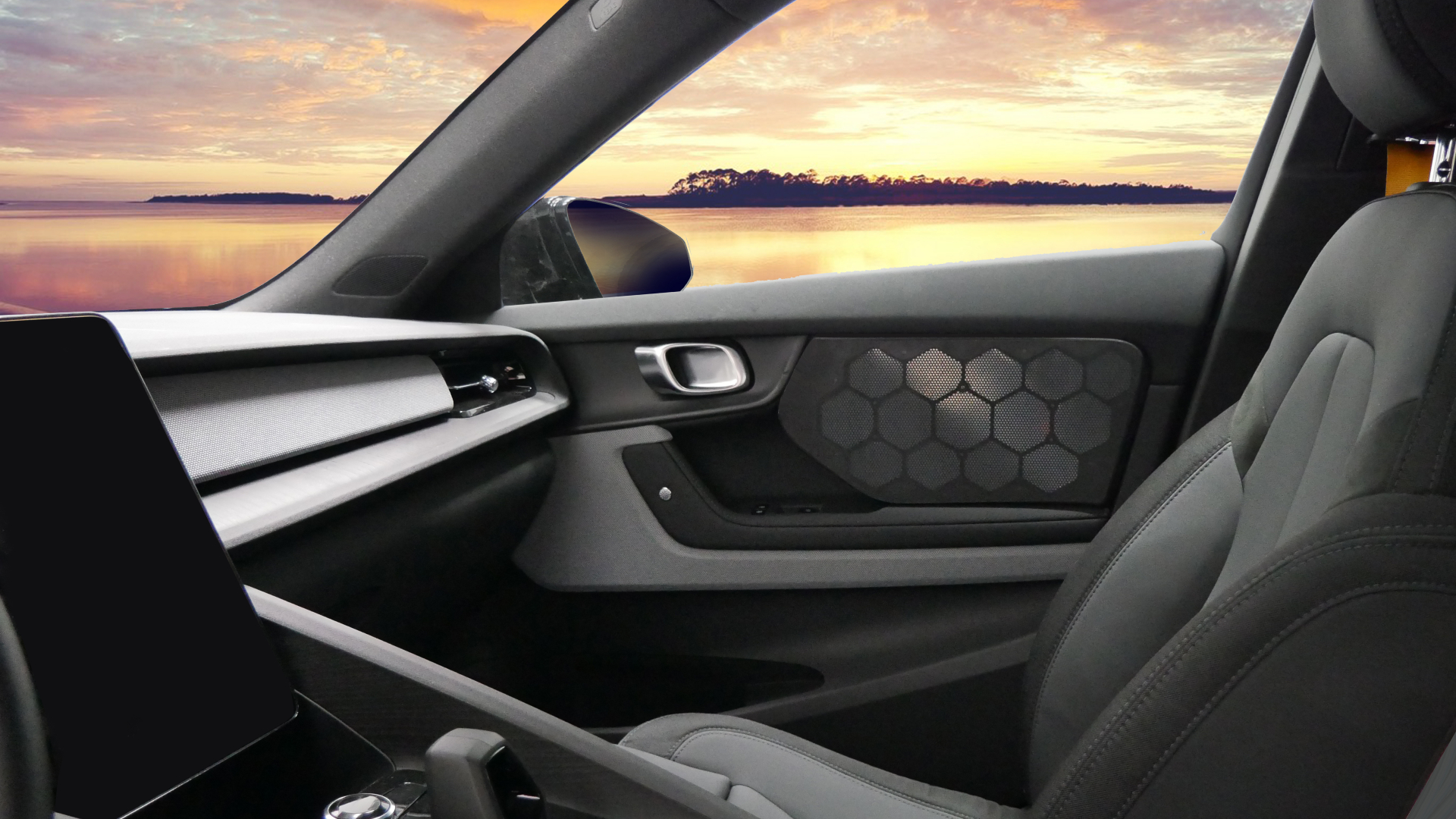There’s no denying it: the EV market is booming. And it’s only fair that high-end audio specialists want a piece of the action, squirreling away their drivers and high-tech processing inside your next electric vehicle for maximum return.
Only, Warwick Acoustics lists far more altruistic reasons for bringing its UK-based electrostatic speaker prowess to “a number of notable car manufacturers” – namely, the elimination of Rare Earth Elements from vehicles (REEs) while seriously cutting down on the toxic waste generated in the mine-to-magnet process.
What are Warwick Acoustics’ zero-REE ElectroAcoustic panels and why should you want them in your next EV? The key term to understanding all of this is ‘Rare Earth Elements’, eg. neodymium (used in magnets found in traditional dynamic hi-fi drivers within the best stereo speakers) and dysprosium. Now, manufacturers want to eliminate sources of REE from their vehicles due to the toxic waste generated in the mine-to-magnet process and supply chain stability.
The permanent magnets in electric vehicle motors are a chief target too, with each motor containing roughly 500g of REEs. However, as much as 30% of the total REE content in a premium EV is in the audio system. This is where Warwick Acoustics’ unique, magnet-free ElectroAcoustic panels come in because they contain zero REE and are made from 100% by mass upcycled and recyclable materials.
Warwick Acoustics CEO, Mike Grant, explains: “The extraction and processing of REE is unfortunately a process which generates a huge volume of waste per gram refined REE – some sources suggest the amount of waste is 2000 times the amount of refined product”.
Warwick Acoustics’ unique ‘Clean Sound’ seems like a commendable automotive solution for rare earth element-free premium in-car audio.
Opinion: Warwick Acoustics has proven electrostatic talent – and I applaud the ecological initiative
With seven granted patent families and two further patents pending, the British-designed and manufactured audio technology brings nothing short of a revolution to in-car audio, moving away from the traditional format of a speaker, the nuts and bolts of which haven’t changed since the first car radio was installed in the 1930s (not long after Western Electric’s huge 12B speakers, in 1927).
Anyone else think the above image from Warwick Acoustics looks like Devialet’s partnership to bring Dione speakers to Japan Airlines in Safran flight seats, but for your car? And that, reader, is a very good thing as far as I’m concerned – before we even get to the planet-friendly benefits.
ElectroAcoustic panels are also lighter and thinner than any conventional speaker too, as Warwick Acoustics CTO, Ben Lisle explains: “Our technology is fundamentally different to a traditional automotive or home speaker. By eliminating the magnet and replacing it with a 1mm thin electrostatic panel, we are able to offer a loudspeaker which is up to 90% lighter and more efficient than a like-for-like moving coil speaker.”
And Warwick Acoustics is no slouch in the electrostatic game: when helping to test the Sonoma Model One for TechRadar’s sister publication, What Hi-Fi? a few years ago, I heard it for myself; those headphones (and I quote) “sound stunning”.
Which specific high-profile automobile brands will see Warwick Acoustics’ unique magnet-free ElectroAcoustic panels soon – the Kia EV3 or EV4 perhaps? Or the Nissan Hyper Adventure, maybe? Or could Tesla seek to regain its slipping grip on the EV market with an ecologically preferable sound system?
Well, the company tells us its first ‘Clean Sound’ partnership was signed in June but that development agreements with “a number of other luxury vehicle manufacturers” are underway. So I can’t say for sure – but still, if cleaner sound and cleaner vehicle manufacture is on the EV horizon, I’m all for it.
